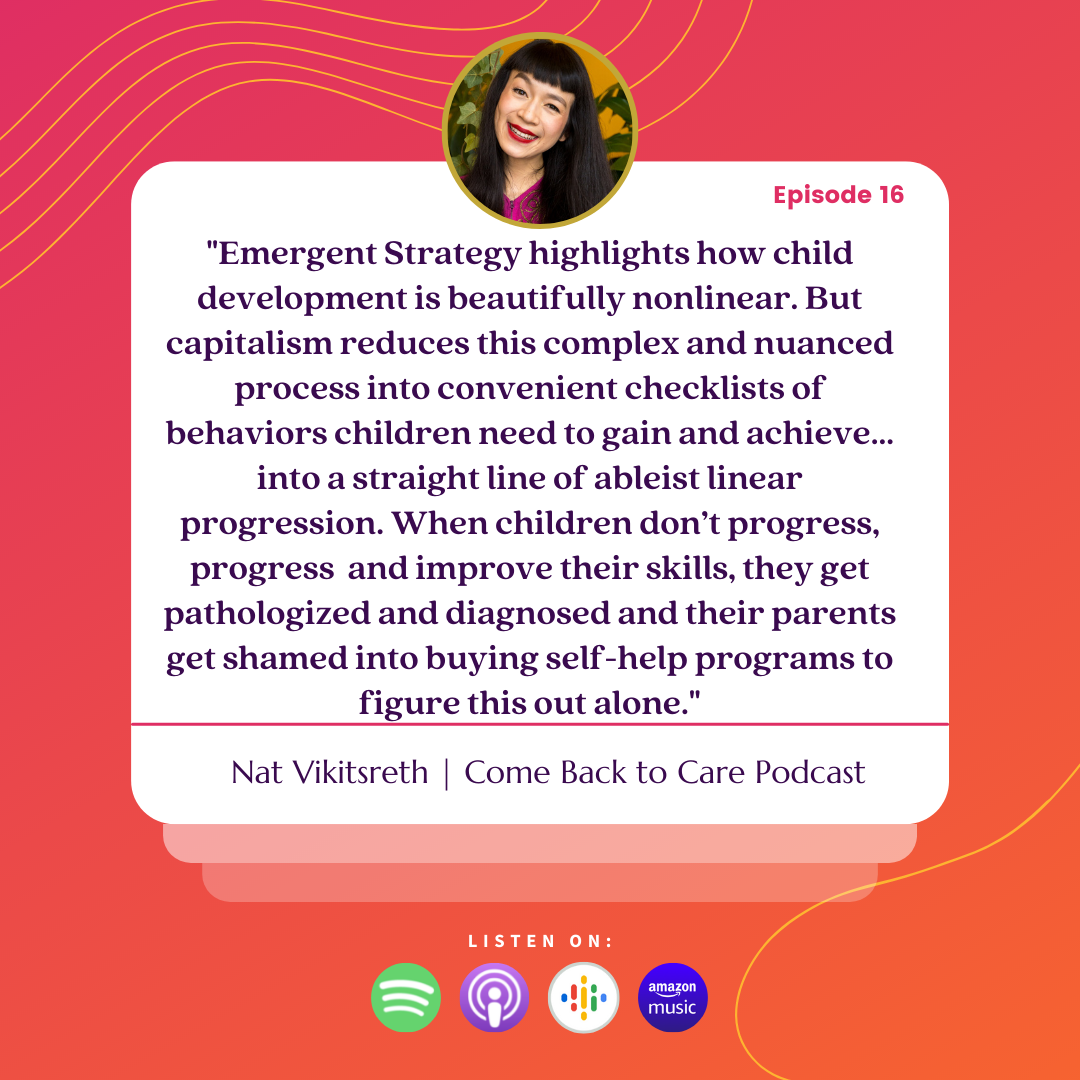
Episode 16: What Children Can Teach Us About Change & Liberation Through Emergent Strategy
Episode Summary
In this episode, we’re going to explore child development through the lens of Emergent Strategy, a framework for understanding change. I have stories of babies, toddlers, and their families I’ve served to share with you. Together we’ll connect the dots between these children’s development and the ways they embody some elements of Emergent Strategy like nonlinearity, iteration, decentralization of power, and interdependence.
What You’ll Learn From this Episode:
How capitalism, colonialism, patriarchy, and white supremacy reduce complex child development into behavior checklists and developmental milestones.
How systemic oppression conditions parents to dissociate from their humanity in order to perform the “good parent” script.
Why slowing down and appreciating the lessons on change and liberation our children teach us can be an important social justice action.
What Emergent Strategy (ES) is and what it has to do with child development and parenting.
Transforming guilt into accountability instead of shame.
Nonlinearity and nonlinear cycles in newborn feeding, toddler’s play, and toddler’s self-regulation.
Unsubscribing from systemic oppression’s idea of an ableist linear progression.
How parents embody nonlinear cycles too.
Iteration, repetition, and persistent in young children for the sake of curiosity and connection instead of productivity and efficiency.
How parents practice iteration through trial and error.
Decentralization of power and children’s parallel play. How children share space without dominating each other.
How parents decentralize power when they meet their child where they’re at.
Interdependence and how parents and their children mutually rely on each other to heal their fragmented parts, take up space, and become whole.
Defining decolonized parenting as a process of discernment. Who’s raising your child?
How Charles named systemic oppression’s influence on his parenting style and reclaimed his parenting authority by realigning his parenting with his values.
Two ways to make daily parenting an act of power-with, solidarity, and accountability as a decolonized parent.
Connect With Us:
Be a part of our newsletter community at comebacktocare.com/newsletter
On Instagram | @comebacktocare
Visit our website at comebacktocare.com
Resource Mentioned:
Emergent Strategy by adrienne maree brown
The Allied Media Conference 2022
Ep 14: How to Start Healing Inner Child Wounds & Practicing Decolonized Parenting
Cut the parenting noise to hear your own voice every other Sunday with me in your inbox…
Bite-sized reflections and action plans for you to build your own practice of social justice parenting & inner child re-parenting. Written with love and sent with care every other week.








